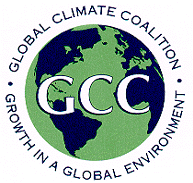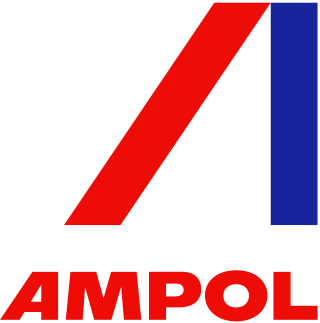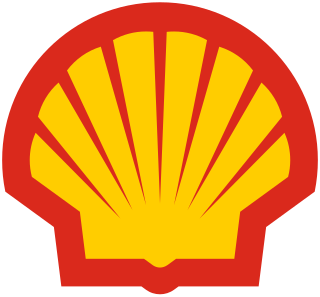| Formation | 1976 |
|---|---|
| Type | NGO |
| Purpose | petroleum industry |
| Headquarters | Canberra |
Region served | Australia |
Main organ | board of directors |
| Website | www |
The Australian Institute of Petroleum (AIP) is a representative body for Australia's petroleum industry. it was established in 1976 and Its headquarters a located in Canberra. The formation of the AIP aimed to foster industry self-regulation and facilitate productive communication among the oil industry, government, and the community. It served as a platform for promoting effective dialogue and cooperation. The AIP took over the role of the Petroleum Information Bureau, an organization that had been active in Australia since the early 1950s, among other entities. [1]
The body is managed by a board composed of chief executives, senior representatives and an executive director. The organisation aims to support the development of sustainable, internationally competitive petroleum products industry. [2]
The four core members are Ampol, BP, Mobil and Shell. [3] Its members own and operate all oil refineries in Australia.
The AIP owns the Australian Marine Oil Spill Centre. It is a member of the Australian Industry Greenhouse Network. The AIP produces a weekly fuel report detailing average prices for transport fuels by location.

The Global Climate Coalition (GCC) (1989–2001) was an international lobbyist group of businesses that opposed action to reduce greenhouse gas emissions and engaged in climate change denial, publicly challenging the science behind global warming. The GCC was the largest industry group active in climate policy and the most prominent industry advocate in international climate negotiations. The GCC was involved in opposition to the Kyoto Protocol, and played a role in blocking ratification by the United States. The coalition knew it could not deny the scientific consensus, but sought to sow doubt over the scientific consensus on climate change and create manufactured controversy.

Petroleum, also known as crude oil, or simply oil, is a naturally occurring yellowish-black liquid mixture of mainly hydrocarbons, and is found in geological formations. The name petroleum covers both naturally occurring unprocessed crude oil and petroleum products that consist of refined crude oil.

A fossil fuel is a hydrocarbon-containing material such as coal, oil, and natural gas, formed naturally in the Earth's crust from the remains of dead plants and animals that is extracted and burned as a fuel. Fossil fuels may be burned to provide heat for use directly, to power engines, or to generate electricity. Some fossil fuels are refined into derivatives such as kerosene, gasoline and propane before burning. The origin of fossil fuels is the anaerobic decomposition of buried dead organisms, containing organic molecules created by photosynthesis. The conversion from these materials to high-carbon fossil fuels typically require a geological process of millions of years.
Koch Industries, Inc. is an American multinational conglomerate corporation based in Wichita, Kansas, and is the second-largest privately held company in the United States, after Cargill. Its subsidiaries are involved in the manufacturing, refining, and distribution of petroleum, chemicals, energy, fiber, intermediates and polymers, minerals, fertilizer, pulp and paper, chemical technology equipment, cloud computing, finance, raw materials trading, and investments. Koch owns Flint Hills Resources, Georgia-Pacific, Guardian Industries, Infor, Invista, KBX, Koch Ag & Energy Solutions, Koch Engineered Solutions, Koch Investments Group, Koch Minerals & Trading, and Molex. The firm employs 122,000 people in 60 countries, with about half of its business in the United States.

The Economic Cooperation Organization or ECO is an Eurasian political and economic intergovernmental organization that was founded in 1985 in Tehran by the leaders of Iran, Pakistan, and Turkey. It provides a platform to discuss ways to improve development and promote trade and investment opportunities. The ECO is an ad hoc organisation under the United Nations Charter. The objective is to establish a single market for goods and services, much like the European Union. After the dissolution of the Soviet Union, the ECO expanded to include Afghanistan, Azerbaijan, Kazakhstan, Kyrgyzstan, Tajikistan, Turkmenistan, and Uzbekistan in 1992.

The petroleum industry, also known as the oil industry or the oil patch, includes the global processes of exploration, extraction, refining, transportation, and marketing of petroleum products. The largest volume products of the industry are fuel oil and gasoline (petrol). Petroleum is also the raw material for many chemical products, including pharmaceuticals, solvents, fertilizers, pesticides, synthetic fragrances, and plastics. The industry is usually divided into three major components: upstream, midstream, and downstream. Upstream regards exploration and extraction of crude oil, midstream encompasses transportation and storage of crude, and downstream concerns refining crude oil into various end products.
The American Petroleum Institute (API) is the largest U.S. trade association for the oil and natural gas industry. It claims to represent nearly 600 corporations involved in production, refinement, distribution, and many other aspects of the petroleum industry.

Suncor Energy is a Canadian integrated energy company based in Calgary, Alberta. It specializes in production of synthetic crude from oil sands. In the 2020 Forbes Global 2000, Suncor Energy was ranked as the 48th-largest public company in the world.

Ampol Limited is an Australian petroleum company headquartered in Sydney, New South Wales. Ampol is the largest transport energy distributor and retailer in Australia, with more than 1,900 Ampol-branded stations across the country as of October 2022. Ampol also operates in New Zealand through its subsidiary Z Energy.

The Ministry of Petroleum (MOP) (Persian: وزارت نفت, romanized: Vezârat-e Naft) manages the oil industry, the producer of oil and petrochemical products. MoP is in charge of all issues pertaining to exploration, extraction, exploitation, distribution and exportation of crude oil and oil products. In addition, according to the "Imports and Exports Regulation Act", issuing import licenses for such products is also among the functions of the Ministry of Petroleum. The ministry has been placed under sanctions by the United States Department of State as of 2020.

Hindustan Petroleum Corporation Limited (HPCL) is an Indian public sector undertaking in petroleum and natural gas industry, headquartered in Mumbai, and a subsidiary of the Oil and Natural Gas Corporation (ONGC), which is owned by the Ministry of Petroleum and Natural Gas, Government of India.

The fossil fuels lobby includes paid representatives of corporations involved in the fossil fuel industry, as well as related industries like chemicals, plastics, aviation and other transportation. Because of their wealth and the importance of energy, transport and chemical industries to local, national and international economies, these lobbies have the capacity and money to attempt to have outsized influence on governmental policy. In particular, the lobbies have been known to obstruct policy related to environmental protection, environmental health and climate action.

Equinor ASA is a Norwegian state-owned multinational energy company headquartered in Stavanger, Norway. It is primarily a petroleum company operating in 36 countries with additional investments in renewable energy. In the 2020 Forbes Global 2000, Equinor was ranked as the 169th-largest public company in the world. In 2023, the company was ranked 52nd in the same list. As of 2021, the company has 21,126 employees.

The Gubkin Russian State University of Oil and Gas is a public university in Moscow, Russia. The university was founded in 1930 and is named after the geologist Ivan Gubkin. The university is colloquially known as Kerosinka, meaning 'kerosene stove'.

BP p.l.c. is a British multinational oil and gas company headquartered in London, England. It is one of the oil and gas "supermajors" and one of the world's largest companies measured by revenues and profits. It is a vertically integrated company operating in all areas of the oil and gas industry, including exploration and extraction, refining, distribution and marketing, power generation, and trading.

Shell plc is a British multinational oil and gas company headquartered in London. Shell is a public limited company with a primary listing on the London Stock Exchange (LSE) and secondary listings on Euronext Amsterdam and the New York Stock Exchange. A core component of Big Oil, Shell is the second largest investor-owned oil and gas company in the world by revenue, and among the world's largest companies out of any industry. Measured by both its own emissions, and the emissions of all the fossil fuels it sells, Shell was the ninth-largest corporate producer of greenhouse gas emissions in the period 1988–2015.
The Uganda National Oil Company (UNOC), also known as the National Oil Company of Uganda, is a limited liability petroleum company in Uganda owned by the Ugandan government. The 2013 Petroleum Act of Uganda provides for the establishment of the national oil company. UNOC's board of directors was inaugurated on 23 October 2015 by the president of Uganda.

Indian Oil Corporation Limited is an Indian oil and gas company under the ownership of the Ministry of Petroleum and Natural Gas, Government of India. Headquartered in New Delhi, it is a public sector undertaking whose operations are overseen by the Ministry of Petroleum and Natural Gas. Indian Oil is ranked 94th on the Fortune Global 500 list of the world's biggest corporations as of 2022. It is the largest government owned oil producer in the country both in terms of capacity and revenue. It has consolidated refining capacity of 80.55MMTPA which it intends to increase to 107MMTPA by 2024-25. As of 31 March 2021, Indian Oil's employee strength is 31,648, out of which 17,762 are executives and 13,876 non-executives, while 2,776 are women, comprising 8.77% of the total workforce.
The UK Petroleum Industry Association (UKPIA) is a trade body representing downstream companies in the oil and gas sector in the UK. The current Chief Executive is Elizabeth de Jong.
The Petroleum Executive was a UK government body established during World War I to regulate the production, import, storage, allocation, distribution and use of petroleum and petroleum products throughout the United Kingdom.